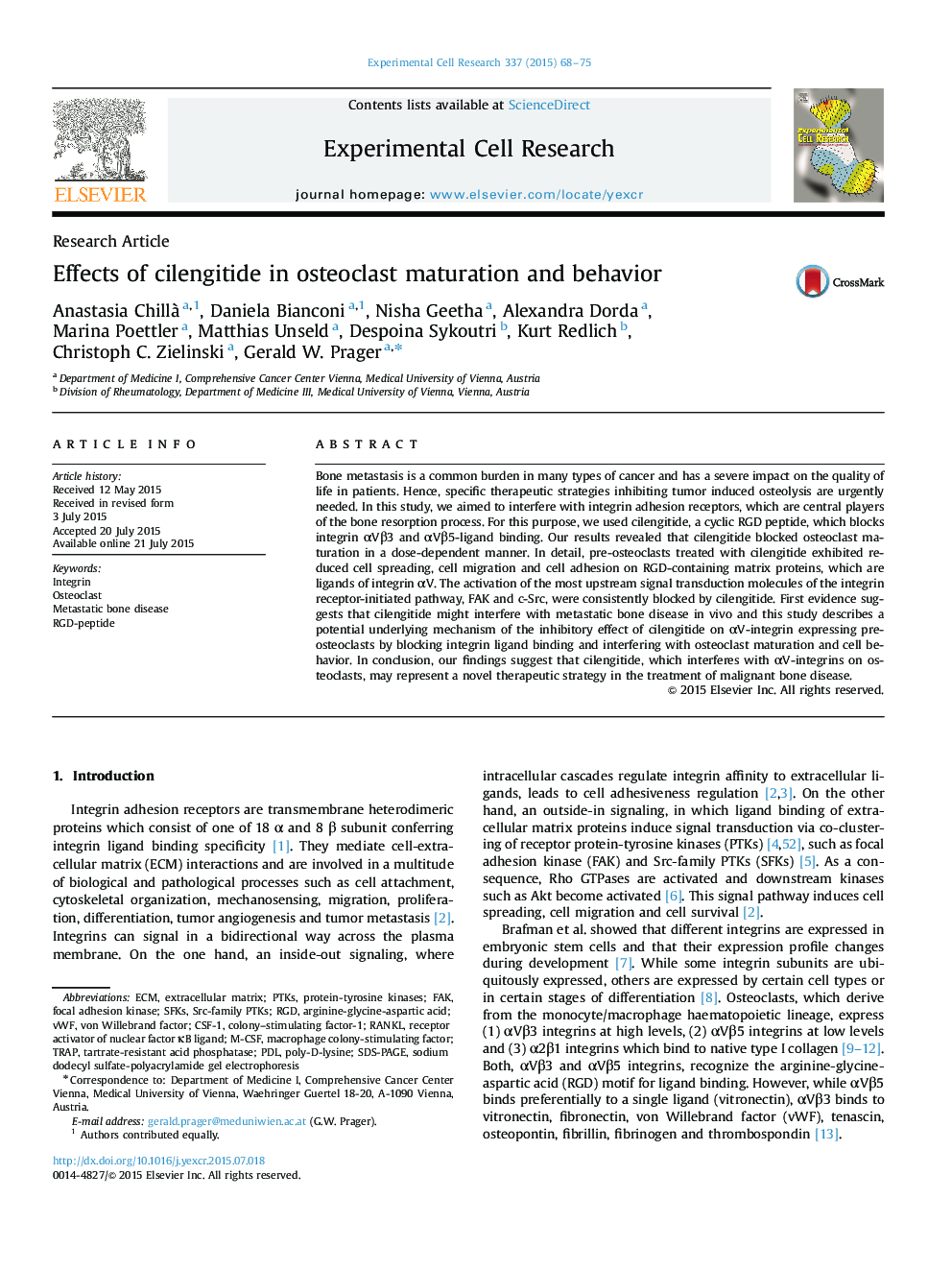| Article ID | Journal | Published Year | Pages | File Type |
|---|---|---|---|---|
| 2130150 | Experimental Cell Research | 2015 | 8 Pages |
•αV-integrin ligand binding is blocked by cilengitide in pre-osteoclasts.•Pre-osteoclasts cell adhesion, cell spreading, cell transmigration and cell maturation was impaired by cilengitide.•The RGD-peptide cilengitide may have a therapeutic effect in metastatic bone disease.
Bone metastasis is a common burden in many types of cancer and has a severe impact on the quality of life in patients. Hence, specific therapeutic strategies inhibiting tumor induced osteolysis are urgently needed. In this study, we aimed to interfere with integrin adhesion receptors, which are central players of the bone resorption process. For this purpose, we used cilengitide, a cyclic RGD peptide, which blocks integrin αVβ3 and αVβ5-ligand binding. Our results revealed that cilengitide blocked osteoclast maturation in a dose-dependent manner. In detail, pre-osteoclasts treated with cilengitide exhibited reduced cell spreading, cell migration and cell adhesion on RGD-containing matrix proteins, which are ligands of integrin αV. The activation of the most upstream signal transduction molecules of the integrin receptor-initiated pathway, FAK and c-Src, were consistently blocked by cilengitide. First evidence suggests that cilengitide might interfere with metastatic bone disease in vivo and this study describes a potential underlying mechanism of the inhibitory effect of cilengitide on αV-integrin expressing pre-osteoclasts by blocking integrin ligand binding and interfering with osteoclast maturation and cell behavior. In conclusion, our findings suggest that cilengitide, which interferes with αV-integrins on osteoclasts, may represent a novel therapeutic strategy in the treatment of malignant bone disease.
